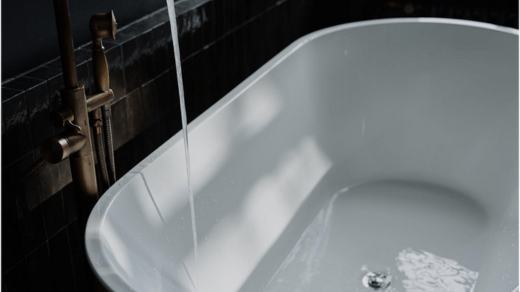Water emergencies can strike anytime, leaving you overwhelmed and at risk of significant property damage. Whether it’s a burst pipe, a flooded basement, or a leaking roof, knowing how to handle water emergencies quickly is crucial for every homeowner.
This blog post will guide you through four essential tips for managing water disasters at home.
Spot Water Issues Early
One of the most critical aspects of handling water emergencies is early detection. The sooner you spot a water problem, the faster you can address it. Keep an eye out for signs such as damp spots on walls, unexplained puddles, or a sudden drop in water pressure.
Regularly inspect areas prone to leaks, such as under sinks, around toilets, and near appliances like washing machines and dishwashers. Early detection not only minimizes damage but also saves you money on repairs.
Additionally, investing in water leak detectors can be a game-changer. These devices alert you to leaks in real-time, giving you the opportunity to act swiftly and prevent potential disasters.
Know When to Call Professionals
While quick fixes can help mitigate damage, some situations require professional intervention. If the water damage is extensive, involves contaminated water, or has affected structural components of your home, it’s time to call in the experts.
Professional water damage restoration companies have the tools and expertise to handle severe water emergencies efficiently. Don’t wait to contact an emergency plumbing or water damage specialist if you’re unsure about the extent of the damage or how to address it.
Professionals can assess the situation, provide effective solutions, and ensure your home is safe and dry.
Implement Prevention Strategies
Taking proactive steps to prevent water emergencies can save you from the hassle and expense of dealing with water damage. Regular maintenance of your plumbing system, with residential plumbing services, is essential.
Check for leaks, corrosion, and other issues that could lead to water emergencies. Install water leak detectors and automatic shut-off valves to catch leaks early and stop the flow of water before it causes significant damage.
These devices are especially useful in areas prone to leaks, such as basements, kitchens, and bathrooms. Educate your household members on how to respond to water emergencies, including how to shut off the main water supply and who to contact for help.
Immediate Damage Control
In the face of a water emergency, quick action is essential to minimize damage. Shut off the main water supply to stop the flow of water. This can prevent further flooding and reduce the extent of the damage. Knowing the location of your main water valve and how to turn it off is crucial for every homeowner.
Once the water flow is stopped, focus on removing excess water. Use mops, buckets, and towels to soak up standing water. For larger amounts, consider using a wet/dry vacuum. Removing water quickly can prevent it from seeping into walls and floors, which can lead to mold growth and structural damage.
If possible, move furniture and valuable items to a dry area to protect them from water damage. Elevate electronics and other sensitive items off the floor.

